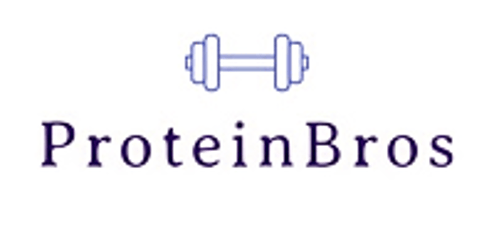The best vegan protein supplements for muscle building: Top picks for plant-based gains
Vegan protein supplements have become increasingly popular among plant-based athletes and fitness enthusiasts. These products offer a convenient way to meet protein needs without relying on animal sources. Many vegan supplements now rival their whey-based counterparts in amino acid profiles and muscle-building potential.
12/12/20247 min read
Vegan protein supplements have become increasingly popular among plant-based athletes and fitness enthusiasts. These products offer a convenient way to meet protein needs without relying on animal sources. Many vegan supplements now rival their whey-based counterparts in amino acid profiles and muscle-building potential.
The best vegan protein supplements for muscle building typically contain a blend of pea, rice, and hemp proteins to provide a complete amino acid profile. These formulations often include additional ingredients like BCAAs and digestive enzymes to enhance absorption and effectiveness. Some top-rated options come from brands like Vega, Garden of Life, and Orgain.
When choosing a vegan protein supplement, it's important to consider factors such as protein content per serving, taste, mixability, and third-party testing for quality assurance. Reading product labels and customer reviews can help identify supplements that align with individual fitness goals and dietary preferences.
Understanding Protein and Muscle Building
Protein plays a crucial role in building and repairing muscle tissue. Vegan protein sources offer unique benefits for muscle growth and overall health.
Role of Protein in Muscle Synthesis
Protein is essential for muscle synthesis, the process by which the body builds new muscle tissue. When we exercise, tiny tears form in our muscle fibers. Protein provides the building blocks needed to repair and strengthen these fibers.
Amino acids, the components of protein, are particularly important for this process. The body requires a complete profile of essential amino acids to effectively build and repair muscle.
For optimal muscle growth, consuming protein shortly after exercise is recommended. This timing helps maximize muscle protein synthesis and recovery.
Benefits of Vegan Protein Sources
Vegan protein supplements offer several advantages for muscle building. They are often rich in fiber, vitamins, and minerals, supporting overall health alongside muscle growth.
Plant-based proteins are typically lower in saturated fat and cholesterol compared to animal-based sources. This can be beneficial for cardiovascular health, an important factor for athletes and fitness enthusiasts.
Many vegan protein sources, such as pea and rice protein, have high bioavailability. This means the body can efficiently utilize the protein for muscle synthesis.
Vegan proteins are also less likely to cause digestive issues compared to some animal-based proteins. This can lead to improved nutrient absorption and overall comfort during training.
Top Vegan Protein Supplements
Plant-based protein powders offer excellent options for vegan athletes and bodybuilders. These supplements provide essential amino acids to support muscle growth and recovery without animal products.
Pea Protein
Pea protein is derived from yellow split peas and boasts a complete amino acid profile. It contains high levels of branched-chain amino acids (BCAAs), which are crucial for muscle building and repair.
Pea protein is easily digestible and has a smooth texture. It mixes well in shakes and can be added to various recipes. This protein source is also hypoallergenic, making it suitable for those with common food allergies.
Many athletes appreciate pea protein for its high iron content, which supports energy production and oxygen transport. It typically provides 20-25 grams of protein per serving.
Brown Rice Protein
Brown rice protein is a popular choice for its mild flavor and versatility. It's made by isolating protein from brown rice and offers a complete amino acid profile.
This supplement is rich in methionine and cysteine, which support muscle growth and antioxidant production. Brown rice protein is also easily digestible and gentle on the stomach.
It contains about 22-24 grams of protein per serving. Brown rice protein works well in smoothies, baked goods, and savory dishes. Its fine texture ensures a smooth consistency in drinks.
Hemp Protein
Hemp protein is derived from hemp seeds and offers a unique nutritional profile. It contains all nine essential amino acids and is rich in omega-3 and omega-6 fatty acids.
This protein source provides about 15-20 grams of protein per serving. Hemp protein also delivers fiber, iron, and magnesium, supporting overall health and digestion.
Its nutty flavor complements smoothies and baked goods. Hemp protein is less processed than other options, retaining more nutrients from the original seeds. It's particularly beneficial for those seeking a protein supplement with added nutritional benefits.
How to Choose the Right Supplement
Selecting an optimal vegan protein supplement involves evaluating several key factors. These include assessing protein quality, considering digestibility, and examining additional nutrient content.
Assessing Protein Quality
Protein quality is determined by amino acid composition and bioavailability. Look for supplements containing complete proteins with all nine essential amino acids. Soy, pea, and rice protein blends often provide a well-rounded amino acid profile.
Check the Protein Digestibility Corrected Amino Acid Score (PDCAAS) or Digestible Indispensable Amino Acid Score (DIAAS) if available. These scores indicate protein quality and digestibility. Higher scores suggest better quality and absorption.
Consider supplements with added branched-chain amino acids (BCAAs) for muscle building support. BCAAs, particularly leucine, play a crucial role in muscle protein synthesis.
Considering Digestibility
Digestibility affects how efficiently the body can utilize protein. Some vegan protein sources may be harder to digest due to anti-nutrients or fiber content.
Look for supplements that use enzyme blends or fermentation processes to enhance digestibility. These methods can break down complex plant proteins into more easily absorbable forms.
Protein isolates often have higher digestibility compared to concentrates. They undergo additional processing to remove carbohydrates and fats, resulting in a purer protein source.
Consider trying different protein sources to find the one that agrees best with your digestive system. Some individuals may tolerate pea protein better than soy, for example.
Additional Nutrient Content
Vegan protein supplements can offer more than just protein. Many include added vitamins, minerals, and other beneficial compounds.
Look for supplements fortified with vitamin B12, iron, and zinc. These nutrients are often lacking in vegan diets and are crucial for muscle growth and overall health.
Consider products with added omega-3 fatty acids from algae sources. These support muscle recovery and reduce inflammation.
Examine the carbohydrate content. Some supplements include complex carbs for energy, while others are low-carb for those focused on fat loss.
Check for artificial additives, sweeteners, and fillers. Opt for supplements with minimal added ingredients for a cleaner product.
Incorporating Supplements into Your Diet
Proper integration of vegan protein supplements is crucial for maximizing muscle-building potential. Careful attention to timing, dosage, and meal planning can optimize the benefits of these supplements.
Timing and Dosage
Consume vegan protein supplements within 30 minutes after workouts to support muscle recovery and growth. This timing helps replenish amino acids depleted during exercise. On non-training days, take supplements between meals to maintain a steady protein intake.
For muscle building, aim for 1.6 to 2.2 grams of protein per kilogram of body weight daily. Divide this amount across 3-5 servings. A typical serving size ranges from 20-30 grams of protein.
Always follow the manufacturer's recommendations on the product label. Start with a lower dose and gradually increase to assess tolerance and effectiveness.
Creating Balanced Meal Plans
Incorporate vegan protein supplements as part of a well-rounded diet. Use them to complement whole food protein sources, not replace them entirely.
Example meal plan:
Breakfast: Oatmeal with nuts, fruit, and a scoop of vegan protein powder
Lunch: Lentil soup, whole grain bread, and a side salad
Snack: Apple slices with almond butter
Post-workout: Vegan protein shake with banana and spinach
Dinner: Tofu stir-fry with mixed vegetables and quinoa
Vary protein sources throughout the day to ensure a complete amino acid profile. Combine supplements with nutrient-dense foods like leafy greens, legumes, and whole grains for balanced nutrition.
Supporting Muscle Gain with Lifestyle Choices
Optimizing muscle growth involves more than just consuming vegan protein supplements. A well-rounded approach incorporates targeted training and adequate recovery periods.
Effective Training Regimens
Resistance training forms the cornerstone of muscle-building workouts. Compound exercises like squats, deadlifts, and bench presses engage multiple muscle groups simultaneously, maximizing growth potential.
Progressive overload is crucial for continued gains. This involves gradually increasing weight, reps, or sets over time to challenge muscles consistently.
Aim for 3-4 strength training sessions per week, focusing on different muscle groups each day. Include both push and pull movements to ensure balanced development.
Proper form is essential to prevent injuries and target the intended muscles effectively. Consider working with a certified trainer to refine technique and develop a personalized program.
Importance of Rest and Recovery
Muscles grow during periods of rest, not during workouts themselves. Aim for 7-9 hours of quality sleep each night to support hormone production and tissue repair.
Allow 48-72 hours between training sessions for the same muscle group. This gives muscles time to recover and adapt to the stress of exercise.
Active recovery, such as light cardio or yoga, can improve blood flow and reduce muscle soreness without hindering the repair process.
Proper nutrition plays a key role in recovery. Consume a balanced meal or shake containing vegan protein and carbohydrates within 30 minutes post-workout to jumpstart muscle repair.
Stress management techniques like meditation or deep breathing exercises can help lower cortisol levels, creating a more anabolic environment for muscle growth.
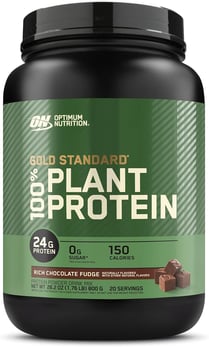

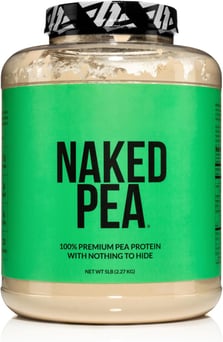

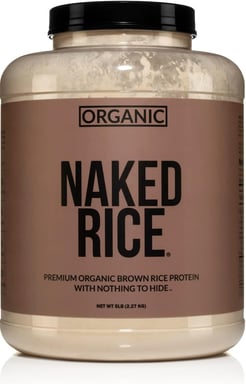

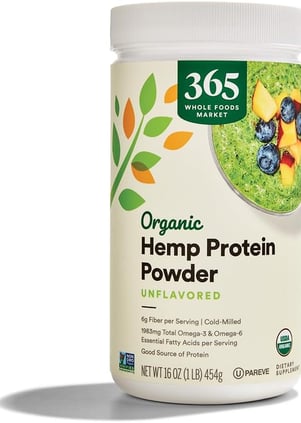

Additional info
Social media coming soon!
Contact us
Newsletter coming soon!
© 2024. All rights reserved.
